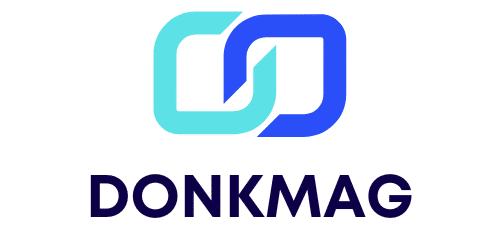Can Participating in Digital Detox Camps Improve Cognitive Function and Focus?

In our current age where technology has magnificently improved our lives, there is an increasing concern about the negative impact of digital devices on our health. The constant use of these devices has become a pervasive part of our lives, impacting our mental well-being, productivity at work, and even our sleep. This has led to the creation of ‘Digital Detox’ camps, a concept that is gaining popularity as people seek balance in their increasingly digital lives. But can participating in digital detox camps actually improve cognitive function and focus? Let’s delve into the topic to explore in detail.
Understanding the Concept of Digital Detox
The term ‘digital detox’ refers to a period where individuals refrain from using digital devices such as smartphones, computers, tablets and social media platforms. The aim is to reduce stress and focus on real-life social interactions without distractions from technology. It’s an opportunity to disconnect from the digital world and reconnect with yourself and the people around you.
Also to see : How to Use Cognitive Behavioral Techniques to Treat Chronic Insomnia?
A digital detox camp is a structured environment where participants are encouraged to engage in various activities that do not involve the use of digital devices. These can range from outdoor exercises, meditation, reading, or crafts. The intention is to help individuals break away from their screens and engage in mindful, rejuvenating activities, thus improving their overall well-being.
The Impact of Digital Overload on Health and Productivity
Our dependence on digital devices and persistent connectivity has led to a significant increase in screen time. This reliance is not without consequences. Various research studies have uncovered the detrimental effects of excessive screen time on physical health, including digital eye strain, sleep disorders, and even obesity.
In parallel : What Is the Impact of High-Intensity Functional Training on Postpartum Recovery?
Moreover, prolonged technology use has been linked with increased levels of stress and anxiety, as well as a decrease in mental health. The constant bombardment of information and the pressure to stay connected can take a toll on our emotional health, leading to feelings of overwhelm and fatigue.
From a productivity standpoint, the constant interruptions and distractions can severely hamper focus and attention. It becomes more difficult to concentrate on tasks resulting in decreased productivity and efficiency at work.
The Benefits of a Digital Detox
Participating in a digital detox allows you the freedom to disconnect from the digital world and engage in other meaningful activities. By taking a break from technology, one can experience multiple benefits, both physically and mentally.
One of the most immediate benefits of a digital detox is improved sleep. The excessive screen time, especially before bedtime, interferes with the sleep cycle. By cutting down on screen time, you can help your body maintain its natural sleep rhythm, leading to better quality sleep.
From a mental health perspective, breaking free from the constant cycle of notifications and updates can significantly reduce stress. You regain control of your time and attention, allowing you to engage more fully in the present moment. This mindfulness can improve mental health and emotional well-being.
Moreover, a break from digital devices can also help improve productivity and focus. Without the constant interruptions from notifications and updates, you can concentrate your time and energy on tasks that require focus, thereby enhancing your productivity.
How Digital Detox Camps Can Help
Digital detox camps provide a supportive environment for people to take a break from their digital devices. They offer a variety of non-digital activities to engage in and provide an opportunity to connect with others on a similar journey.
By immersing oneself in such an environment, you are compelled to break away from technological distractions. In turn, this helps to improve focus and attention span. When you are not constantly checking your devices, your mind is free to focus on one task at a time, improving your cognitive function.
Furthermore, these camps offer a structured approach to digital detox, ensuring that the break from technology is not just temporary but can be incorporated into your everyday life. They provide strategies and tools to manage digital usage effectively, helping to maintain the benefits of the detox even after the camp is over.
Participating in a Digital Detox Camp: What to Expect
If you decide to take part in a digital detox camp, be prepared for a complete break from technology. You will be required to hand over all your digital devices upon arrival.
The days are structured with various activities designed to improve your well-being. You can expect physical activities like hiking, yoga, or team sports, as well as creative activities like painting or writing. There are also mindfulness sessions to help you relax and rejuvenate.
In these camps, you will have the opportunity to interact with fellow participants, forming connections and building relationships. It’s a chance to learn from and inspire each other on this digital detox journey.
While it may be a challenging experience at first, with time, you will start noticing the benefits. Improved sleep, lesser stress levels, and enhanced focus are just a few benefits you can expect from participating in a digital detox camp.
The key is to take the lessons learned during the detox and apply them to your daily routine. This way, you can maintain a balanced digital life, reaping the benefits of technology without letting it dictate your life.
The Positive Repercussions of Digital Detox on Cognitive Function
The impact of a digital detox on cognitive function and focus is noteworthy. According to various studies, excessive use of digital devices and social media can lead to cognitive overload. This can manifest as a decrease in memory capacity, difficulty in decision-making, and impaired focus. The constant influx of information from various sources simultaneously can overwhelm the brain and lead to cognitive fatigue.
During a digital detox camp, as you disconnect from your devices, your brain gets the much-needed break from this constant information bombardment. This respite can lead to improved cognitive function. By focusing on one task at a time without digital distractions, your ability to concentrate is enhanced.
It is also observed that spending time outdoors, engaging in physical activities can boost brain health. Nature walks or other outdoor activities often integral part of these camps, can help in stress reduction and improve mental clarity. Engaging in mindful activities like meditation or yoga can enhance attention span and memory.
There is also the aspect of improved sleep quality. The blue light emitted by digital screens negatively affects the production of melatonin, the sleep hormone, leading to disturbed sleep. As sleep quality improves during a detox, it positively impacts cognitive functions like memory, attention, and problem-solving skills.
Conclusion: The Nuances of Balance in a Digital Age
Living in a digital age, completely disconnecting from our devices might not be entirely feasible or even desirable. Technology has undeniably brought significant improvements in various aspects of our lives. However, the key lies in striking a balance. The goal is not to completely eliminate the use of digital devices but to create a healthy relationship with technology.
Participation in a digital detox camp can serve as a starting point in this journey towards balance. It provides an opportunity to experience life without constant digital interruptions, to reconnect with oneself and others in real life, and to understand the impact of excessive screen time on our mental and physical health.
The lessons learned from these camps can then be applied in everyday life. Whether it is setting specific ‘tech-free’ hours during the day, reducing the usage of social media, or spending quality time outdoors without the need to document it digitally – small steps can make a big difference.
Digital detox retreats offer an excellent opportunity to break the cycle of continuous technology use, improve mental well-being, and enhance cognitive function and focus. By consciously controlling our digital consumption, we can reap the benefits of the digital age without compromising on our health. In essence, a balanced digital life is not just about disconnecting from our devices, but about reconnecting with ourselves.
